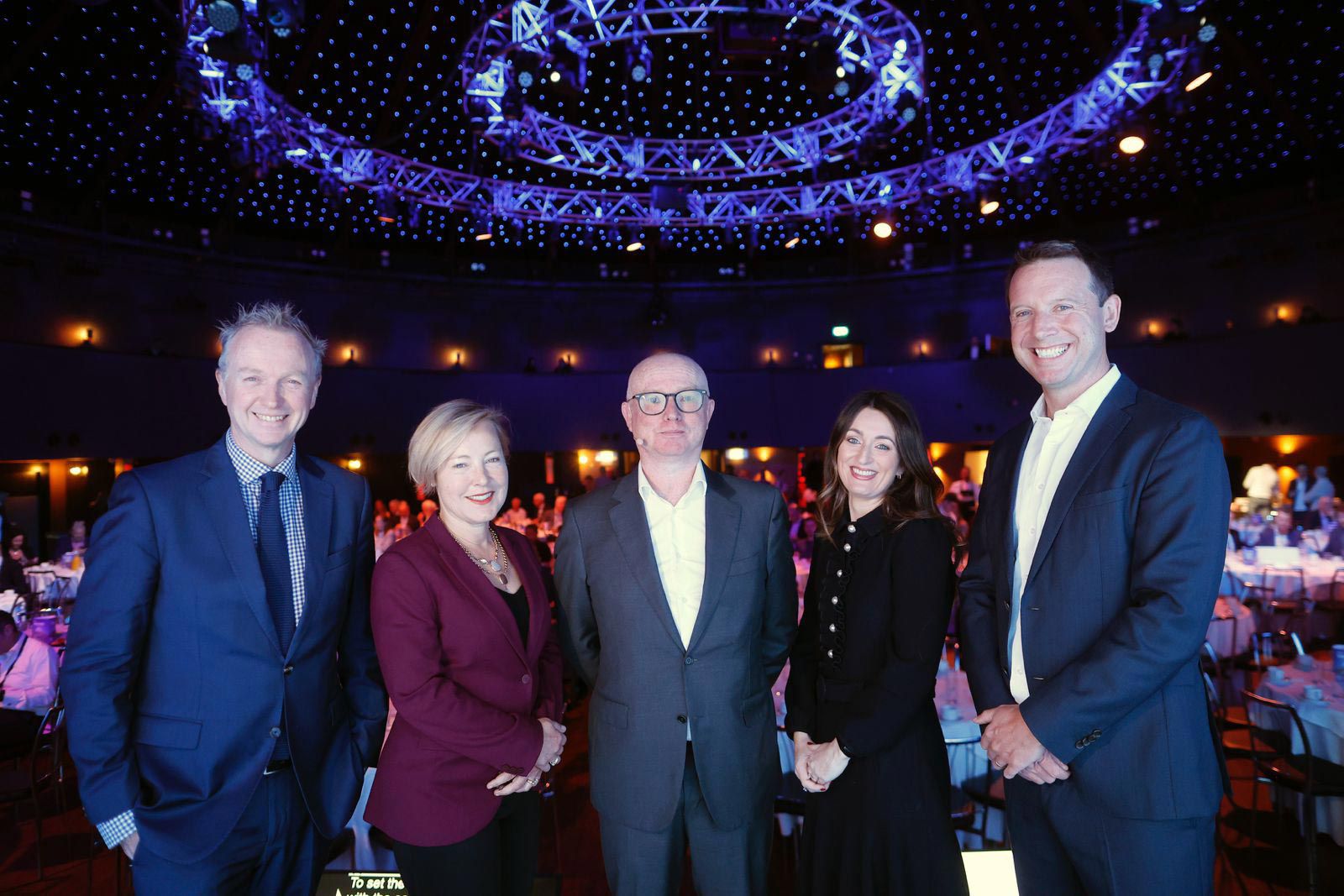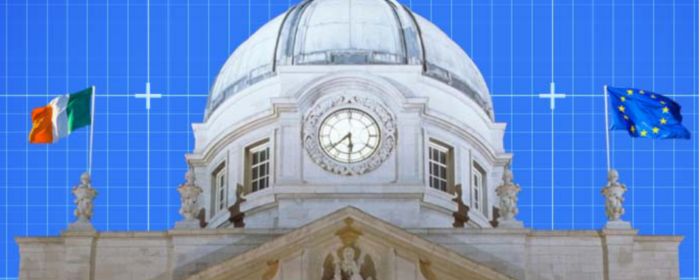Government budgets tend to be framed in the context of the bigger political and economic picture and Ireland’s Budget 2025 is no different.
With substantial spending announced ahead of an anticipated general election, Ireland's economy was described as robust and resilient by acclaimed Financial Times journalist Gillian Tett at a recent KPMG Budget Breakfast briefing in Dublin.
Offering perspectives on the global economic, political and technology climate, Tett encouraged the Mansion House audience to consider that business leaders are now having to live beyond the balance sheet. According to Gillian Tett, many of the complex challenges facing today's leaders were not addressed in their academic or professional training, leaving them vulnerable to events they didn’t anticipate or haven’t direct experience of.
Health risks
For example, the seismic impact of COVID-19 on business and society seen in recent years could not have been imagined and it has drastically reshaped leaders’ perspectives. Tett acknowledged how the pandemic has forced businesses to rethink their operational models and risk assessments and highlighted the importance of public health in economic stability, “Medical risk wasn’t even on balance sheets 10 years ago, yet COVID-19 has completely reshaped our economies."
This shift illustrates how health risks have become a central concern for leaders in navigating the ongoing complexities of today’s economy.
Environmental considerations
Meanwhile, environmental risks, largely absent from business concerns merely a decade ago, have now become critical issues for companies and Ireland is not immune. Noting that flooding alone costs the American economy around half a trillion dollars annually, underscoring the urgency of integrating environmental considerations into corporate strategies, Tett emphasised that businesses must adapt to these challenges as climate change increasingly impacts economic stability and operational planning.
The other risk which didn’t feature on corporate balance sheets a few years ago according to Gillian Tett is the cost of the regulatory response to extreme weather events. “Politicians are waking up and introducing new and often unexpected regulatory measures in response to climate change, business will need to factor in the cost and this is likely to become an increasingly bigger risk and expense for any company looking forward.”
In this context, the latest data from the KPMG 2024 CEO Outlook shows that roughly two thirds of CEOs globally (including in Ireland) have embedded ESG in their strategies and it’s evident that business leaders on the island are paying attention to the need for more environmentally inclusive strategies.
Moreover, the global increase in electricity demand, driven in part by the rise of AI technologies, is prompting a significant shift to renewable sources and reigniting the debate about nuclear energy. As industries increasingly rely on AI for data processing, automation, and decision-making, the demand for energy to power these systems is surging.
The impact of tech
Technological advancements, particularly as advancements in AI continue apace, have brought significant risks. Gillian Tett noted that while AI offers potential productivity gains, it also poses disruptive challenges across various sectors, affecting both blue-collar and white-collar jobs.
Highlighting the uncertainty surrounding whether AI will create new opportunities for workers or simply exacerbate existing inequalities, she underscored the need for businesses to navigate these technological challenges carefully.
Tett also spoke about the extraordinary pace at which AI has suddenly not just grabbed politicians' attention, but also that of the C suite. According to Tett, “This is the case both in terms of potentially very positive productivity gains, but also in how it could potentially disrupt incumbents in several sectors and create a wider social and political backlash against the costs and disruption.”
Such perspectives also reflect our aforementioned CEO research which also show a growing number of leaders recognising the need to invest in workforce capabilities and prioritising skills development as a key strategy for navigating the complex environment created by AI.
Trade flows
The budget briefing also discussed how global trade flows and investment patterns are shifting, and how national security priorities are impacting supply chains and economic relationships.
Amid these circumstances, Tett acknowledged foundational elements that Western business leaders took for granted—such as globalisation, free market capitalism, innovation, and democracy—are now under threat and in retreat in some areas; “Instead of autocracies becoming democracies, autocracies have infected democracies,” she stated, highlighting the intricate relationship between politics and economic stability.
As for whether the era of globalisation is ending, Tett says that on paper at least, globalisation is still just about growing. “If you look at the four measures at the NYU Stern Business School tracks, which are movement of people, movement of goods, movement of capital and movement of ideas and information, it's just about still growing, primarily because movement of ideas and movement of information, has continued to grow dramatically in recent years due to the spread of the internet.”
However, Tett also notes that the globalisation growth rate has dramatically slowed down, which has implications for an open economy such as Ireland. As she concluded, Gillian Tett reflected on Ireland’s relatively stable position amidst global chaos, noting its resilience and flexibility over the past 15 to 20 years. She emphasised that “these attributes will be crucial for navigating future challenges as business leaders everywhere get used to living beyond the balance sheet.”

Pictured L: R Matt Cooper, Broadcaster and journalist, Gillian Tett, Chair of the US Editorial Board and America Editor-at-Large, Financial Times, Dan O'Brien, Chief Economist, Institute of International and European Affairs, Olive O'Donoghue, Tax Partner, KPMG and Tom Woods, Head of Tax, KPMG.
Get in touch
The measures unveiled in Budget 2025 will have far-reaching implications for businesses across Ireland. If you have any enquiries, comments, or wish to explore further, we are here to assist.
Contact any member of our Tax team today.
Tom Woods
Partner
KPMG in Ireland
Brian Brennan
Partner
KPMG in Ireland


